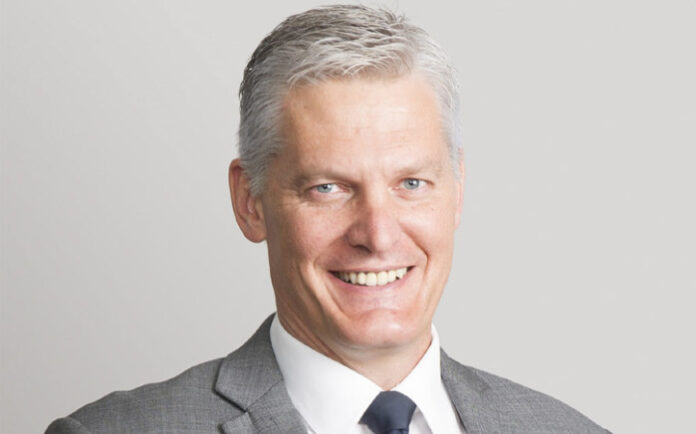Barely ten months into office as Chief Executive Officer of Eskom, South Africa’s power utility company, André de Ruyter is pushing ahead with the unbundling of the debt-ridden state power utility in a bid to attract private investment.
Speaking at the opening session of this year’s Africa Utility Week and POWERGEN Africa, which went virtual due to the coronavirus pandemic on Tuesday, November 24, 2020, De Ruyter highlighted five key focus areas in his turnaround strategy.
These include full functional separation of the utility’s three divisions: generation, transmission and distribution by March next year. Provided that all regulatory approvals are obtained, De Ruyter hopes to have legal separation of transmission by December 2021.
“And that, I think, will be a very important milestone to attracting additional private investment into generation,” he said.
Having shifted from the private sector to public himself, De Ruyter noted challenges in the state-sphere.
“The pace of decision making and the number of permissions that you have to obtain to do anything is quite extraordinary, and that slows down the turnaround of Eskom quite significantly. We have, I think, persevered; we have badgered and pestered people in decision-making positions to make those decisions sooner. But something as simple as registering a subsidiary, which from the private sector would take maybe a week, takes much longer in the state-owned sector.
“And it’s due to the focus on good governance, which, given Eskom’s history, of course, is well warranted. But one has got to keep the focus on turning the business around, and I think sometimes the focus is not quite there.”
According to him, “By April, we should see a change. Other key focus areas are addressing the utility’s R450 billion debt burden, and obtaining “operational stability” with next April and September 2021 flagged as goal dates.
“The very negative impact of load shedding on the economy is well known and it’s something that we wish to put behind us as quickly as possible,” said De Ruyter.
“By April of next year, we should see a change in the reliability of our generation system. And then by September of 2021, we should see the risk of load shedding substantially reduced.”
To control costs, the utility has cut its workforce by 2000 people.
“We have, already over the past 10 months, said goodbye to 2000 employees,” said De Ruyter.
“So we are making some progress. There’s more to come. And that’s, of course, without resorting to forced retrenchments.”
In addition, Eskom management would not receive increases or bonuses this year.
“Very important is to address the legacy of capture and corruption and turning around the morale of our people.
“You can imagine that morale is low, people are feeling quite despondent. We have taken a decision not to give any increases to management this year. Also, in order to contain our costs, there will be no bonuses.”
On the global shift to renewable energy, De Ruyter said Eskom’s just energy transition (JET) project office would navigate the utility’s move away from coal in a way that does not “jeopardise” livelihoods.
“I think moving away from a model that’s been around for 97 years, which is how long Eskom has been in existence, to something that is different, is always regarded as potentially threatening by a variety of stakeholders,” he said.
“Obviously, as we make the energy transition, increasingly moving to renewable energy, you can imagine that that provokes alarm amongst the ranks of communities and workers who’ve invested generations in coal as a commodity, whether it’s mining or whether working in a coal fired power station. And we, therefore, have to address those very legitimate concerns as we make the transition,” he concluded.
Source: www.energynewsafrica.com















